Jobs and Skills Australia (JSA) has expressed concern that the nation’s universities are not producing graduates who have the skills that employers need.
JSA commissioner Barney Glover says the organisation’s research has found that this is a problem with engineering and IT graduates in particular. He notes that employers consider that up to 90% of graduates applying for jobs in these sectors are not suitable.
“There is a gap between the skills of graduates and the requirements of employers”, Professor Glover told The Australian.
“JSA research has found that too many engineering and IT graduates are not being hired for jobs they are technically qualified for, because they lack the employability skills that are required”.
Glover contends that universities should offer more ‘blended’ degrees by combining theory with vocational training to ensure that graduates are “work-ready”.
Meanwhile, Australian Chamber of Commerce and Industry (ACCI) director of skills, employment, and small business, Jodie Trembath, said that some university graduates had failed to master school-level English or the STEM subjects of science, technology, engineering and maths.
“It’s worth noting that our members have reported a drop-off in the kinds of skills these graduates should have picked up while they were at primary and secondary school”, she said.
According to unpublished JSA statistics from employer surveys, 10 to 30 technically qualified people apply for each job position in engineering or IT. However, employers told JSA that 70% to 90% of applicants were “unsuitable” for the positions.
Engineers Australia chief engineer Katherine Richards noted that migrants made up nearly two-thirds of Australia’s engineering workforce, and employers’ reluctance to hire engineers “is not an oversupply issue, but one of suitability and employability’’.
“Many engineering graduates, including migrants and international students, hold the right technical qualifications, but often face barriers such as lack of local experience, limited professional networks, or difficulty demonstrating communication and leadership skills”, she said.
The reality is that Australia’s university system will not evolve to offer more ‘blended’ degrees by combining theory with vocational training, as they are geared towards international students.
Australia has the largest share of international students studying at its institutions in the world.
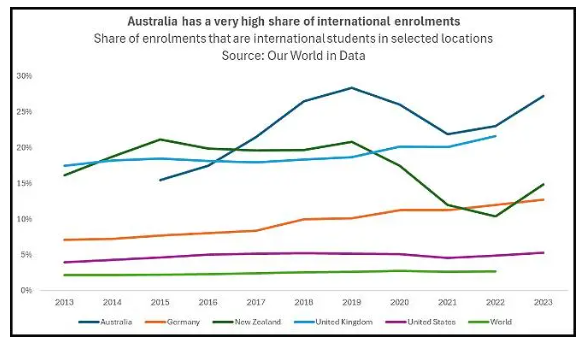
The share is especially high at universities, where 46% of enrolments are international students.
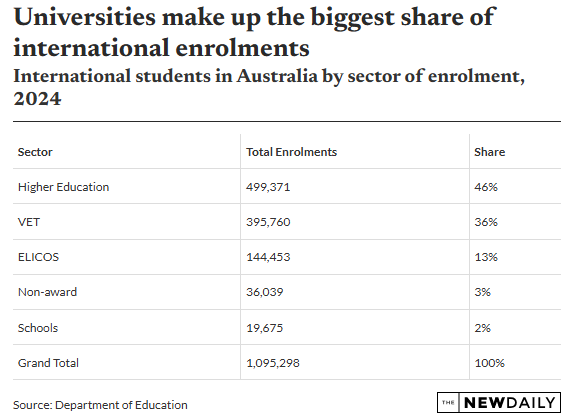
The AFR conducted interviews with several Chinese students late last year, who elucidated the perception of Australian university degrees as being of low quality and easily obtained.
Chinese international student, Yuzhe Zhou, who studies at Sydney University, said that some Chinese employers refer to Australian degrees as “shui shuo”, or “water degrees”.
“Some international students report that in China, Australian universities face criticism for their shorter degree duration, being labelled as ‘water degrees,’ implying low academic value and high prestige without substance”, he said.
These statements came from Chinese students studying at Melbourne University and Sydney University, two of Australia’s most prestigious universities.
One can only imagine how they would perceive second-tier universities, which are home to South Asian students who select Australia primarily for its easy work rights and opportunities for permanent residency.

South Asian students care about immigration, not education quality.
These South Asian students have dominated the growth in international student numbers over the past decade.
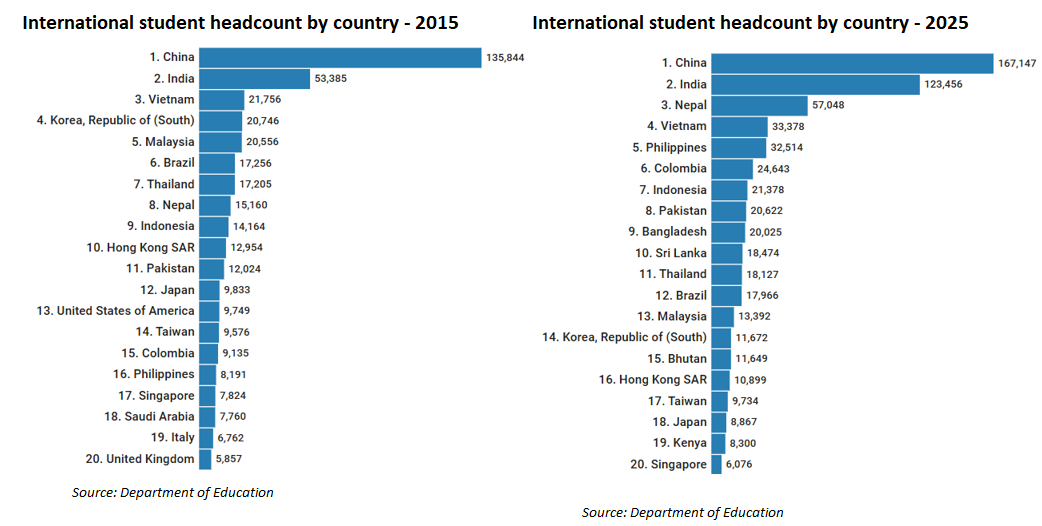
According to the most recent IDP Emerging Futures survey, post-study work rights (52%) are the most important consideration for international students when deciding where to study. This is followed by paths to permanent residency (43%).
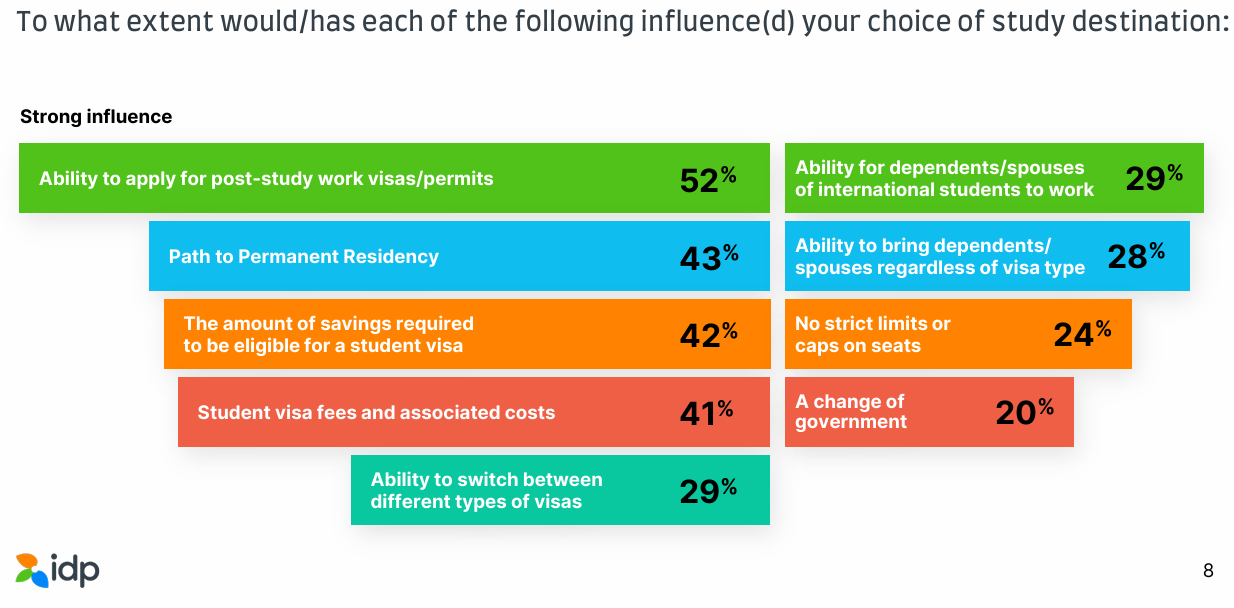
Not surprisingly, Australia remains the top study destination for potential overseas students.
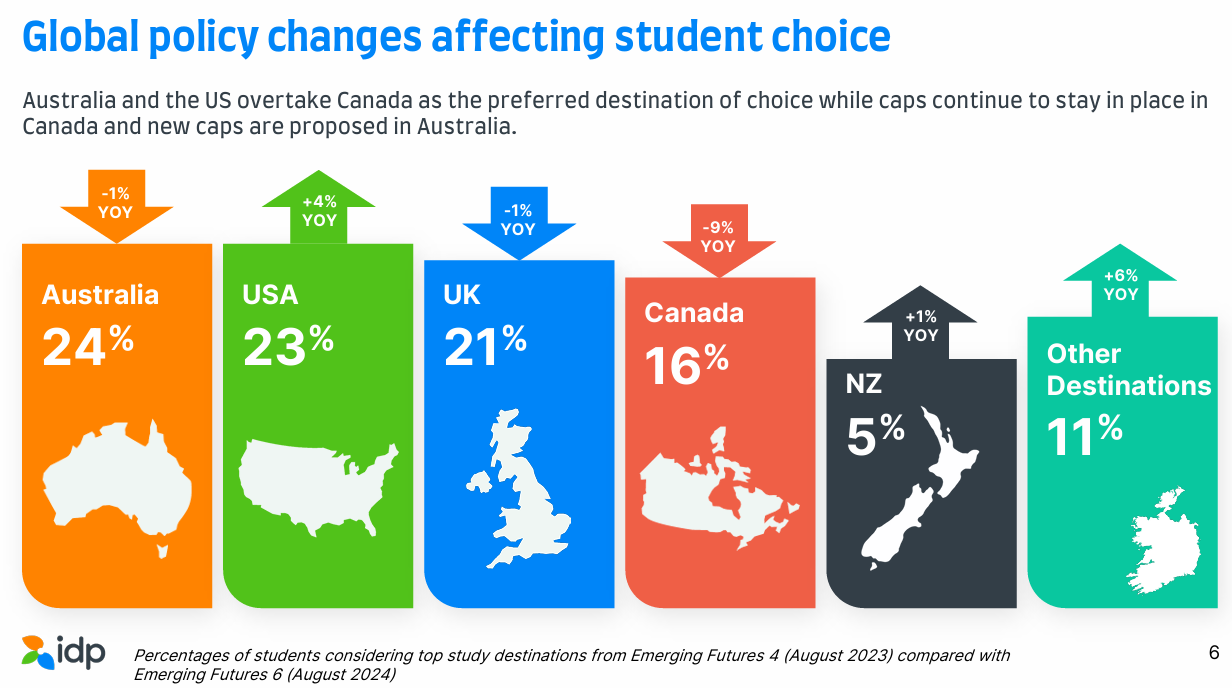
Why would universities risk jeopardising international student enrolments by changing the way courses are taught to incorporate more vocational training?
Australia’s universities have transformed into degree mills. They are more concerned with maximising student throughput than providing a quality education.

